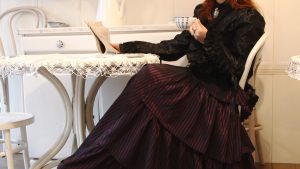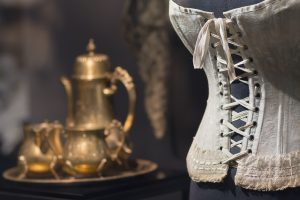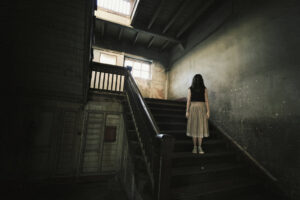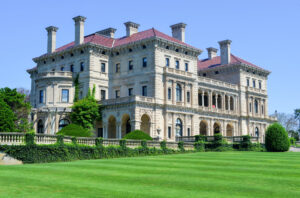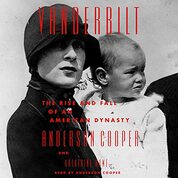 The nightmare began at the beginning of the 19th century, when an eleven-year-old boy named Cornelius Vanderbilt dreamt of making vast quantities of money that would one day set him apart as the richest man in America. Vanderbilt followed the rule book for all aspiring tycoons: work your ass off, ruthlessly attack your competitors, even if one of them is your own father, and live below your means.
The nightmare began at the beginning of the 19th century, when an eleven-year-old boy named Cornelius Vanderbilt dreamt of making vast quantities of money that would one day set him apart as the richest man in America. Vanderbilt followed the rule book for all aspiring tycoons: work your ass off, ruthlessly attack your competitors, even if one of them is your own father, and live below your means.
In contrast, Vanderbilt’s wives and children followed the rule book for entitled heirs of the super-rich: travel the world, throw lavish parties while the working class suffers, viciously gossip about ‘friends’ in your circle to your heart’s delight, and above all, recklessly squander the wealth that dear old crusty Cornelius labored for all his life. By the way, do you see a faint resemblence between Cooper and Cornelius? I do.
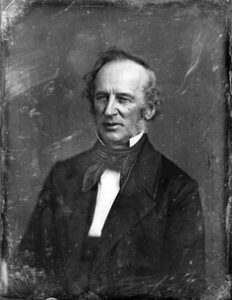 American business magnate, Cornelius Vanderbilt.
American business magnate, Cornelius Vanderbilt.
When I first learned that Anderson Cooper was the great-great-great grandson of the larger-than-life Cornelius Vanderbilt, aka “The Commodore,” I felt the same kind of envy that I experience upon learning that someone is a trust fund baby, privileged since birth. Like most, I assumed that Cooper had inherited millions of dollars and his hefty salary at CNN, about 12 million per year, was simply frosting on the cake. ‘Must be nice,’ I jealously thought.

But that’s just not the case. By the time Cooper entered the mix as Gloria Vanderbilt’s beloved son, almost all of the Vanderbilt money had been squandered by his ancestors, most seemingly clueless about the importance of investments and living on a ‘budget’ that would make most of us swoon. Cooper shares tale after tale of grossly impractical expenditures that soaked millions from the family fortune: The Breakers, a 70-room mansion in Newport, Rhode Island, the proverbial white elephant with outdated plumbing and exorbitant maintenance fees, and the famous Vanderbilt mansion on 5th Avenue, built in 1882 to last 1000 years, it was demolished in 1926.
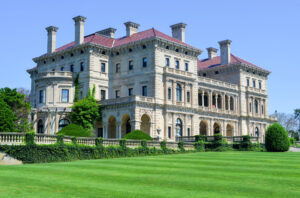 “The Breakers” was the grandest of Newport’s summer “cottages.” Renaissance Revival, circa 1895.
“The Breakers” was the grandest of Newport’s summer “cottages.” Renaissance Revival, circa 1895.
Vanderbilt: The Rise and Fall of an American Dynasty, is beautifully written. Cooper narrates the audible version with the same dry air of detachment that he employs when discussing the nightly news. He has a sharp eye for the hidden nuances, contradictions, and hypocrisies of people living in a gilded age in which social climbing was an artform. He does not seek to defend them or mythologize them. He simply tells it like it was… and is to this day. Exorbitant wealth and good character mix about as well as oil and water. That was true at the turn of the century, and it’s just as true now.
Highlights: the ‘Grey Gardens’ plight of Alice Vanderbilt, donating The Breakers to a nonprofit for public tours only to be forced out of her upstairs living quarters in old age; the heroic death of Alfred Vanderbilt aboard the Lusitania; Cooper’s mother, Little Gloria, not-so-happy at last after enduring a prolonged and toxic custody battle as the richest girl in the world; and the self-sabotaging journey of literary great, Truman Capote, friend and betrayer to many of NYC’s elite.

Kudos to Cooper for casting his mother, fashion designer Gloria Vanderbilt, in a brutally honest yet affectionate light. Like her predecessors, Gloria thought that money grew on trees and her squandering was limitless. To her credit, she created a best-selling clothing line and loved her sons. At the end of her life, Cooper was working overtime to pay his mother’s bills, not just for round the clock nursing care, but also for her impulsive purchases. No wonder he was glad to never receive a dime from the fallen Vanderbilt estate. It enabled him to learn the value of hard work and yes, even balance a checking account- two important traits that most of his ancestors never quite seemed to grasp.
